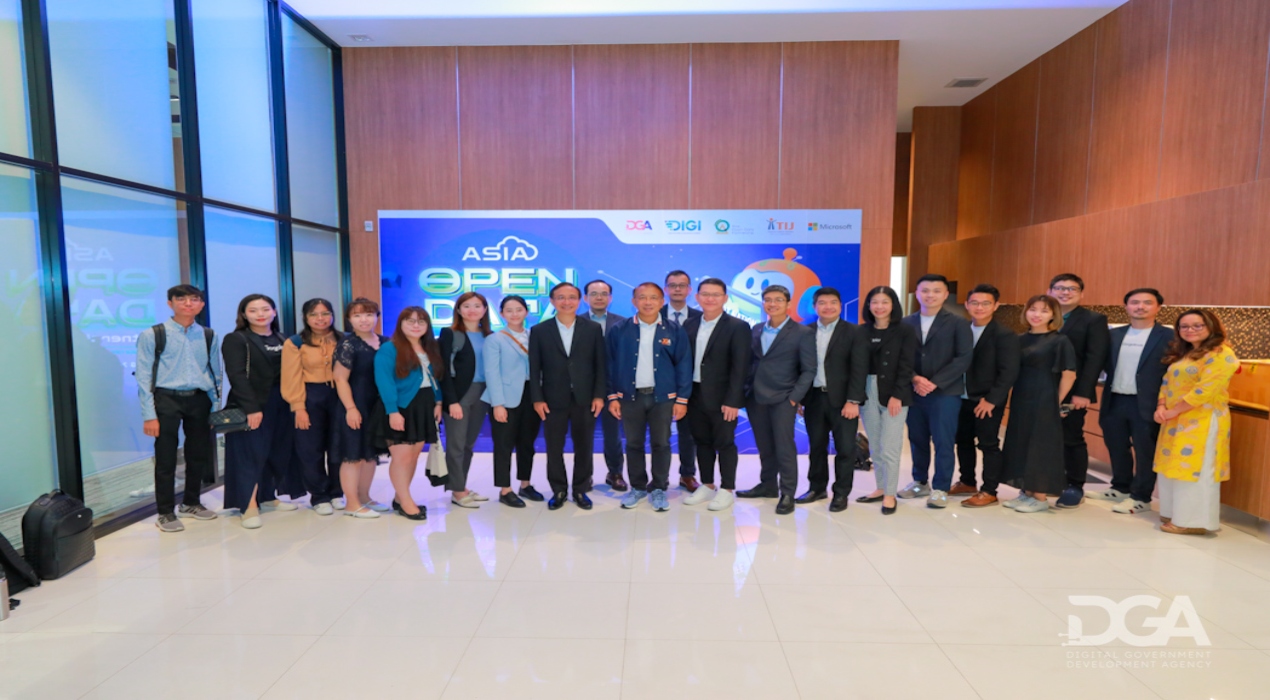
|
Getting your Trinity Audio player ready...
|
Dr Nopparat Maythaweerakulchai, Chairman of the Digital Government Development Agency, emphasised the government’s commitment to enhancing the transparency and accessibility of government information. This commitment aligns with the broader vision of fostering an open government that prioritises participation, transparency, and accountability.
In pursuit of these objectives, Thailand is hosting the open data forum, bringing together a network of both public and private sectors. The primary aim of this forum is to facilitate the exchange of knowledge regarding data sharing policies, leveraging digital technologies, and promoting the utilisation of data from diverse angles, encompassing civil society and economic perspectives.
Thailand’s hosting of this forum underscored the pivotal role of “open government data” in the transformation towards a digital government. This transformation entailed the integration of innovative technologies to enhance public administration and services, with the goal of delivering intelligent services or smart services tailored to the needs and preferences of citizens.
It aimed to enhance citizen satisfaction with government services, optimise budget allocation for meaningful projects, and bolster the competitiveness of the business sector. Ultimately, this endeavour sought to create additional economic value and develop a robust value chain, positioning Thailand as a formidable contender on the global stage.
“Open-government data” is a strategic instrument to actively engage the public sector in establishing a digital government ecosystem. This approach proves immensely valuable in fostering among citizens, entrepreneurs, and government entities, facilitating their collective involvement in collaborative endeavours. Furthermore, it has the potential to spark innovative initiatives grounded in data-driven insights.
By embracing open-government data, Thailand can stimulate a profound transformation that transcends traditional bureaucratic boundaries. This evolution involves the active participation of all stakeholders, including citizens, who are empowered with transparent and accessible information. Entrepreneurs, too, can leverage this wealth of data for entrepreneurial ventures, while government agencies harness it for informed decision-making.
In this collaborative atmosphere, the catalyst for innovation lies within the data itself. Insights derived from open-government data can spur novel approaches, policies, and services, propelling Thailand into a progressive, data-driven era. As a result, the nation can aspire to become a model of effective data utilisation, effectively charting a course toward an advanced digital government landscape.
Dr Supoj Thienwut, the Director of the Digital Government Development Agency, expressed the agency’s strong commitment to advancing the utilisation of government information for the betterment of the economy and the public.
By hosting this forum, the DGA aims to disseminate knowledge centred around fostering a culture of data-driven decision-making. These initiatives are designed to impart essential skills and expertise to government officials and encourage them to adapt their work behaviours to align with the principles of a Data-Driven Organisation.
Moreover, it also brings multiple participants’ networks from eight distinct economic regions. These participants included representatives from government agencies, the private sector, and academia, spanning Thailand, Vietnam, Korea, Japan, Malaysia, Myanmar, the Philippines, and Taiwan.
The overarching goal of this gathering was to cultivate a culture of data-driven decision-making, equipping individuals with the capabilities to extract profound insights from data. These insights are pivotal in informing decision-making processes and conducting in-depth analyses across various domains.
Furthermore, these forum catalyse robust collaborations within a data community, extending beyond national boundaries. They facilitate the exchange of information at an international level, thereby contributing to the harmonisation and integration of diverse datasets. This cooperative effort results in tangible use cases that benefit the public and contribute to the further expansion of the economy.
“This transition underscores the pivotal role of open-government data in redefining governance paradigms and positioning Thailand as a trailblazer in the data-driven public sector”, expressed Dr Nopparat.
















